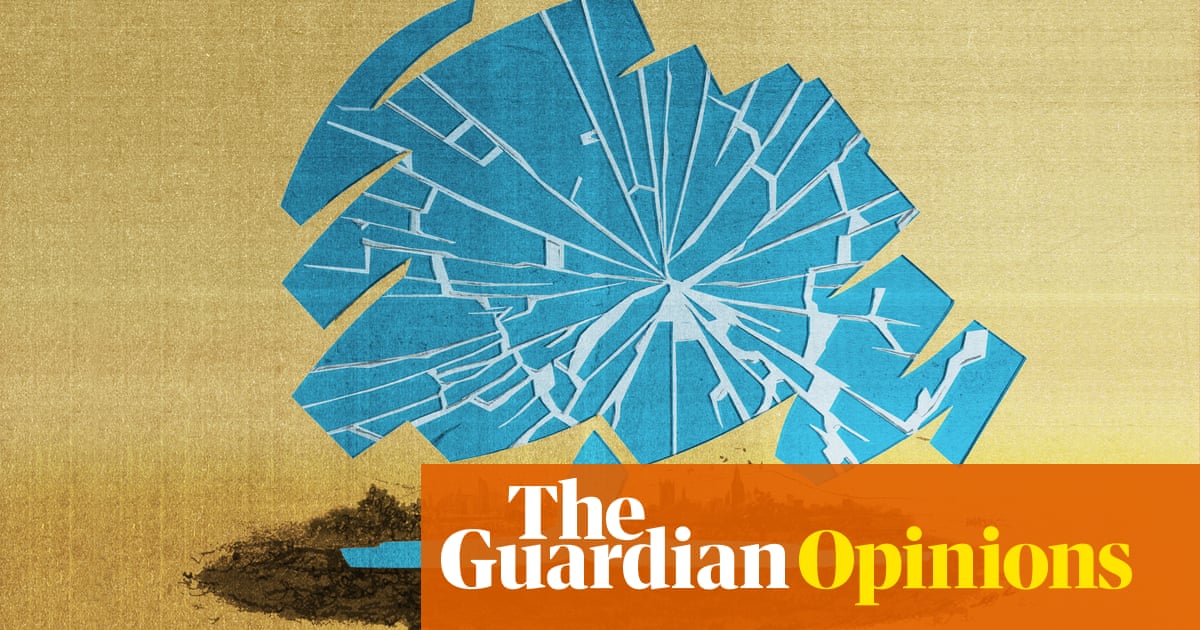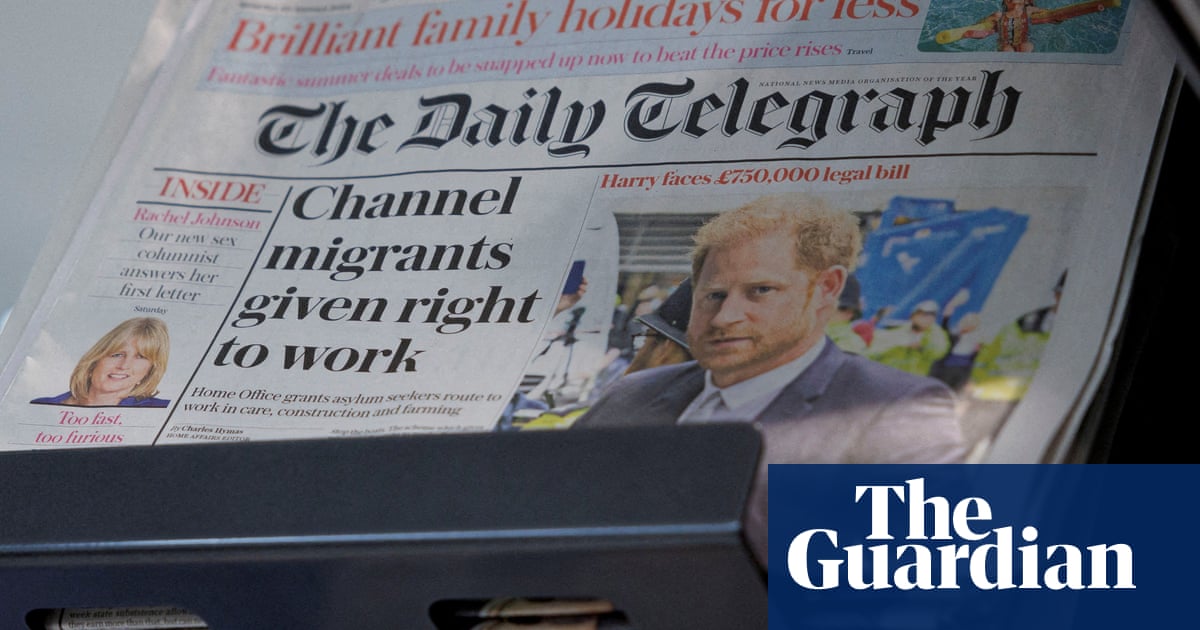
For a man whose first speech to the new parliament expressed disdain for “the politics of performance”, Sir Keir Starmer is putting on quite the show. His first 10 days at Number 10 have been choreographed to relentlessly convey the impression that the fresh-minted prime minister and his team have arrived in office not with a whimper, but a bang.
Downing Street released footage of Sir Keir taking the customary congratulatory call from the White House: “Mr Prime Minister, congratulations! What a hell of a victory!” Hail to the chief. The cameras were also invited into the cabinet room. Grinning new ministers were told, rather superfluously, that they had “a huge amount of work to do”. Then there was the shock-and-awe photo of the supreme leader with his huge cohort of Labour MPs fanned around him like peacock feathers.
The whirlwind of activity has included a speed-dating tour to see the leaders of the devolved governments in Edinburgh, Cardiff and Belfast, followed by a Downing Street breakfast with all of England’s metro mayors. They took selfies outside Number 10 and bubbled with delight at being treated with respect after years of feeling snubbed by the previous regime. I bumped into a former Labour cabinet minister, who remarked: “The flurry of activity. What does it amount to?” I would have thought the purpose obvious. First impressions count and voters will already be forming judgments about their new rulers. The intent is to project a picture of an energetic government getting down to business.
The Nato summit in Washington provided a fortuitous opportunity to take the Starmer show on to the world stage. At his first international fixture as prime minister, it wasn’t the hardest thing he’ll ever do to look impressive in the company of a peer group who are mostly ailing or flailing or both. Joe Biden, the host, is under mounting pressure from his own party to abandon his bid to seek re-election as US president. Emmanuel Macron has lame-ducked himself by calling snap parliamentary elections that have resulted in a hung national assembly. Olaf Scholz of Germany presides over a troubled and unpopular coalition and faces an election next year that he is widely expected to lose. Justin Trudeau, the long-serving Canadian prime minister, leads a Liberal party that trails its opponents by a substantial margin. The travails of his fellow summiteers created a flattering contrast for Britain’s freshly elected mountain climber. It is music to Labour ears to hear international investors say that the UK, which became a global byword for banana republic levels of mayhem under its previous mismanagement, now looks much more investable as an oasis of stability compared with many of our competitors.
Rolling the pitch for this week’s conclave of European leaders at Blenheim Palace, David Lammy, the foreign secretary, has been whistle-stopping around key continental countries, while John Healey, the defence secretary, hotfooted it to Odesa to meet his Ukrainian opposite number and renew the vows to assist the struggle to resist brutal Russian aggression. In the competition to make a splash, ministers have been issuing a spate of announcements. The Rwanda scheme is already “dead and buried”, the de facto Tory ban on building more onshore wind turbines has been revoked, to the pleasure of environmentalists and energy experts, and compulsory housebuilding targets are coming back. The pomp and pageantry of this week’s King’s Speech will see the monarch unveil the first Labour legislative programme in 14 years. The agenda will emphasise expanding the economy. This on the grounds that only improved growth can unlock a sustainable path to all the other things that Labour MPs would like to see done, from tackling poverty to repairing public services.
Sir Keir wants to show us a government with its foot pressed to the accelerator. The Tory years may appear to be fast receding in the nation’s rear-view mirror. And yet that doesn’t suit Team Starmer. Not at all. While they are keen to convince the country that it has got a busy new government, they are equally determined that the long years of Conservative rule are firmly lodged in the public mind. Labour will be most pleased if voters are still recoiling with repulsion from the Tories for years to come.
That helps to explain why the chorus of positive messages from ministers is being accompanied by a doleful drumbeat of dread about the state of things. We’ve had the alarming declaration that “our prisons are broken”. We’ve been told the same about the health service. At a conference organised by the Tony Blair Institute, I heard Wes Streeting, the health secretary, sound even more apocalyptic by asserting that he’d inherited “a burning platform” from the Tories. He’s announced a “warts and all” inquiry into the condition of the NHS. Spoiler alert: it is not going to conclude that everything is just peachy. The chancellor, Rachel Reeves, looking to underline what she calls “the legacy of 14 years of chaos and economic irresponsibility”, has instructed Treasury officials to conduct an urgent review of the state of the national finances and will present its findings to the Commons before the summer recess. Spoiler alert: this review is not going to conclude that the Tories were splendidly trustworthy custodians of the country’s money. I’m told that Bridget Phillipson, the education secretary, is considering an investigation of the physical condition of the schools estate. Spoiler alert: it won’t find school buildings to be in great shape.
You may ask: why bother? The public are highly aware that the Conservatives made a shocking mess. Disgust with their record is why the number of Tory MPs in parliament has been crushed to the lowest level in their party’s history. “We’ve got them out. Now we’ve got to lock them out,” explains a member of Team Starmer. The minds of Labour strategists are already focused on what it will take to secure re-election in 2028 or 2029. At the heart of their calculations is not allowing the Tory record to disappear down a memory hole. “We’re not going to let them forget,” says a cabinet member. One thought knocking around in Downing Street is that they should commission an overarching independent audit of the state of the public realm, the idea being to highlight just how badly Britain has been broken.
There is more than one motive for all this emphasis on the direness of Labour’s inheritance. Perhaps the most obvious incentive is to give the Starmer government space by suppressing any expectations that turning things around will be swift and easy. “It’s crucial to buy us time,” says one confidant of the prime minister. “If we don’t explain the scale of the problems, people will get frustrated with us.” New homes will not be built overnight. Infrastructure can’t be created with a wave of the hand. Reducing NHS waiting lists will be a slow grind rather than a quick fix. The more that can be done to dramatise the dreadful legacy of the Conservatives, so goes the thinking at Number 10, the more slack Labour may be granted by voters. Affixing culpability to the Tories also serves as an excuse for break-glass-in-case-of-emergency measures, such as releasing criminals early to relieve pressure on rammed jails. If that looks an awful lot like the kind of “short-term sticking-plaster politics” that Sir Keir is usually the first to scorn, you know who to blame. Yep, the Tories.
The strategic goal is to ensure that the Conservatives are weighed down for years to come by making them wear their record around their necks like a crushing albatross. George Osborne, the former Tory chancellor, might seem an unexpected inspiration for Labour strategists, but he provides a template for how to go about imprinting an indelibly negative definition on your opponents. In the wake of the 2010 election, he moved rapidly and ruthlessly to pin the blame for all of Britain’s problems on Labour by claiming it was entirely a legacy of the previous government’s fiscal incontinence. This helped the Tories shift responsibility for all the pain of their austerity programme on to the inheritance they’d received from Labour.
What was sauce for the goose then is sauce for the gander now. When the Starmer government has to make tough and unpopular decisions, the Osborne model demonstrates how to redirect the blame on to your predecessors. As much as Sir Keir and his team will talk up a brighter future with Labour, they also want the nation never to forget its dark past under the Tories.
Andrew Rawnsley is the Chief Political Commentator of the Observer












